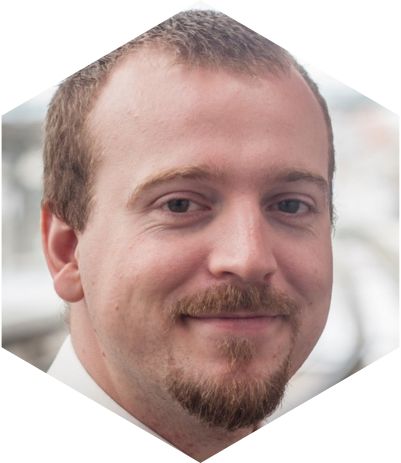Alumni introduce themselves
Nick De Smedt


Lead Piping Design Engineer
In summary, don't want to fall into a repetitive job, would you like to stay intellectually stimulated with challenges that require all your inventiveness, and get paid to grow in a job like nowhere else? Then Piping design is probably for you.
To start at the beginning, I started as a piping designer and then progressed to lead. Don't let piping fool you in the job title, because we actually do mostly design, or rather AL design, in 2D and 3D. As a designer, you digitally build what the customer has in mind. Usually this is in 3D programs where, piece by piece, you build a model in which all the elements start to slide together like pieces of a puzzle until they form a beautiful whole (an industrial puzzle, that is). You draw a lot yourself from ""0"" to a good working design and often add extra information that you receive along the way (from suppliers, other departments, 3D laser scans, old and newer models from the customer, ...) to make the picture clearer/correct. What's a nice bonus about this job, you can't learn this at uni/school, you get paid to learn this on the job.
An education in chemistry or EM are certainly useful in terms of background and some knowledge of drawing programs will certainly come in handy, but you learn the real trade of piping design on the job. Once you have mastered the job (and we are talking about a few years later), you can advance to expert, lead or a "side branch". The experts are the people who take design to heart and like to keep doing it without the additional administration ... that is for the lead (i.e. me). As a lead, you let go of the design work a bit (that's what you have those great designers for) and mainly deal with the flow of information so that everything is made correctly and to your liking (even more meetings, emails and thinking). The side branches are also experts, but often in a specific part (stress, material, software admin, ...) for which I don't have enough space here (ask me when we speak :-)).
I could elaborate a lot about the phases in a project, the scales of projects, work at home & abroad, the collaboration with colleagues from piping & other departments & in other countries, the meetings with the customer & internally (sometimes a bit boring if I'm honest) and the site visits where you enter installations (literally in, under, on, over, between, through) of the largest (and smaller) chemical, petrochemical, pharmaceutical, metallurgical, ... companies.
But then you'll have to come over and talk about it ... Now that I have your attention, it might be worthwhile :-).
